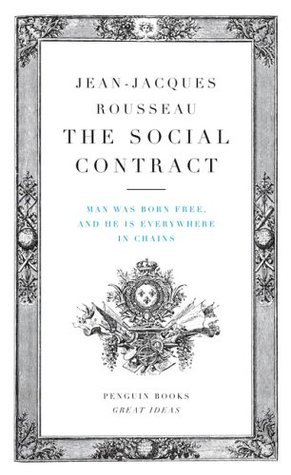
The Social Contract
Book Description
Imagine a world where freedom and authority collide in a battle for the soul of society. In 'The Social Contract,' Jean-Jacques Rousseau boldly challenges the foundations of governance, arguing that true liberty is only found through collective agreement. He ignites a revolutionary dialogue on the role of the individual versus the state, crafting a vision of democracy that resonates through history. As citizens wrestle with the question of their rights versus their responsibilities, tensions mount and ideals clash. Will the dream of a just society triumph, or will it succumb to the chains of tyranny? What price will they pay for freedom?
Quick Book Summary
In "The Social Contract," Jean-Jacques Rousseau explores the foundations of political legitimacy and the means to reconcile individual freedom with the authority of collective governance. Rousseau contends that humans are born free but are everywhere in chains due to unjust social structures. He develops the idea of the "general will," representing the collective interests of the people. By entering into a social contract, individuals agree to unite under a common framework that secures both security and liberty. Rousseau critiques existing forms of government and argues for a participatory democracy, where sovereignty resides with the people. The work remains a fundamental treatise on democracy, citizenship, and civil society, influencing political thought and revolutionary movements for centuries.
Summary of Key Ideas
Table of Contents
Liberty and the Nature of the Social Contract
Rousseau begins by examining the concept of liberty, asserting that although humans are born free, societal institutions impose artificial constraints. He claims that legitimate political order, as opposed to mere power, must derive from an agreement among free individuals. The social contract is Rousseau’s solution: a collective agreement where each person gives up certain personal freedoms to create a unified community. Under this arrangement, authentic freedom is preserved because the law is an expression of the collective will and every individual is equally subject to it.
Sovereignty and the General Will
A central pillar of Rousseau's argument is the idea of sovereignty, which he maintains must reside with the people as a whole. The “general will” represents the shared interests of the community, transcending individual preferences. Rousseau distinguishes the general will from the will of all, emphasizing that self-interest should be set aside in favor of what serves the common good. The state is only legitimate when it enacts the general will, and citizens must participate in its formation to preserve their freedom.
Critique of Inequality and Authority
Rousseau directs sharp criticism toward existing social and political inequalities, which he sees as products of illegitimate authority and property-based distinctions. He sees society’s structures as corrupting, taking people further from their natural state of equality and mutual respect. The social contract aims to establish equality before the law, eliminating privileges and restoring justice. For Rousseau, inequality breeds instability and conflict, whereas legitimate government arises from collective agreement and equal participation.
Law, Government, and the Role of the Legislator
Laws and the machinery of government are crucial in actualizing the social contract. Rousseau differentiates between the sovereign, the lawmaker, and the executive. The sovereign, or the body of citizens, is responsible for making foundational laws, but effective lawmaking often requires visionary legislators to guide the process. Government structures, such as monarchy, aristocracy, or democracy, are secondary to the fundamental principle that authority must flow from the will of the people. Corruption sets in only when government oversteps or ignores the general will.
Balancing Individual Rights with the Common Good
Throughout, Rousseau wrestles with the balance between individual rights and the common good. He insists that true liberty is not the ability to do anything one wants, but to live under rules one prescribes for oneself as part of the community. Members of a just society must actively participate, remain vigilant against tyranny, and cultivate civic virtue. Even when the social contract demands some personal sacrifice, it protects a richer form of freedom—one anchored in collective commitment and mutual respect, ensuring a stable and just society.
Download This Summary
Get a free PDF of this summary instantly — no email required.





